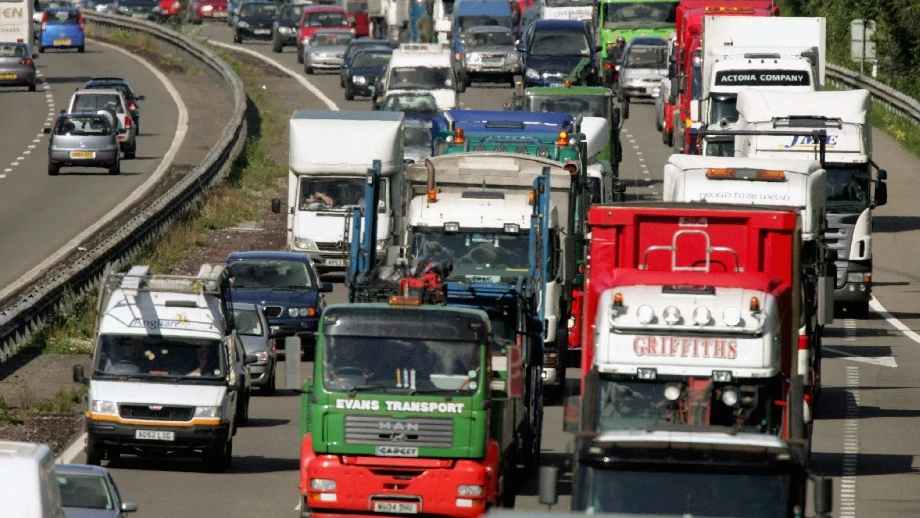
Member Article
IRU report uncovers barriers to road safety investment
IRU has released a comprehensive report on road safety investment by mobility and logistics operating companies.
The findings highlight that while the commercial road transport industry recognises it has a key role to play in improving road safety, significant financial, regulatory and societal barriers exist.
With more than 3,500 people dying on the world’s roads every day according to United Nations figures, it has never been more important to address issues around road safety.
Commercial vehicles are involved in less than 3% of road accidents, of which 85% are caused by human error (25% due to the professional driver, 75% due to the other road user). Commercial operators and their professional drivers are nevertheless visible role models on our roads, and take their responsibility on safety seriously.
IRU’s new report assessed safety related investment decisions by companies running buses, coaches and trucks. It looked at the safety culture inside the company, why and how they invest in vehicle, human and operational measures, and what blocks investment.
The findings are based on a detailed survey of 949 mobility and logistics operators across 26 countries in Western Europe, Eastern Europe and the Commonwealth of Independent States region.
Key findings in the report include:
- Logistics and mobility operators are already investing heavily in road safety and 80% will continue to strongly invest in the future
- Operators see a clear commercial benefit in investing in road safety practices, but are driven first and foremost by a strong sense of social responsibility
- Investment currently favours vehicle technology (41%), with 31% directed towards human elements and 28% to operational safety measures
- Financial resources and cost-benefit ratios are the biggest barriers to continued investment in road safety
- Operators overwhelmingly want more international standards, with 90% prioritising increased driver safety standards
- Operators take their responsibility in mobility and supply chains seriously, with 74% regularly measuring the safety performance of subcontractors
Umberto de Pretto, Secretary General at IRU, commented: “The single biggest factor affecting road safety today is people. We need to push further investment in the human elements of road safety – from certification schemes and better driver monitoring through to general awareness campaigns to drive a stronger safety culture.”
The report’s findings point to action in four areas – for the industry, regulators and other road safety stakeholders:
-
Create a stronger safety culture – the private and public sector must work together to build a stronger culture of road safety, sharing best practice and learning from one another. -
Target business incentives – governments need to better target incentives so that the wider mobility/supply chain and societal benefits of improved safety are taken into account in operators’ cost-benefit analysis of purchase decisions, making it more viable for them to invest in safety. -
Make certification mandatory – training must be more broadly enforced, with a focus on cultural as well as technical factors, with clear reporting requirements and, where feasible, mandatory certification schemes. -
Harmonise international standards – at an international level, authorities need to introduce smarter and more harmonised standards, to enable lower innovation investment costs and more streamlined measurement and reporting in the long term.
Umberto de Pretto concluded: “As we bring key industry players together to tackle the business challenges of road safety at IRU’s Logistics and Innovation Forum, we need to look carefully at what is driving safety investment.
“Commercial road transport operators are involved in a small percentage of all accidents, yet have a very strong sense of social responsibility and, with the right changes to boost investment, they can also help others advance and make our roads safer for all”.
This was posted in Bdaily's Members' News section by IRU .




 test article 123456789
test article 123456789
 hmcmh89cg45mh98-cg45hm89-
hmcmh89cg45mh98-cg45hm89-
 test456456456456456456
test456456456456456456
 test123123123123123123
test123123123123123123
 test xxxdiosphfjpodskhfiuodsh
test xxxdiosphfjpodskhfiuodsh
 Savour the flavour: North Tyneside Restaurant Week returns for 2024
Savour the flavour: North Tyneside Restaurant Week returns for 2024
 Six steps to finding the right buyer for your business
Six steps to finding the right buyer for your business
 Stephen signs off on a special night
Stephen signs off on a special night
 Life’s a Peachaus: Gillian Ridley Whittle
Life’s a Peachaus: Gillian Ridley Whittle
 Making a splash: Phil Groom
Making a splash: Phil Groom
 Making workplace wellbeing a priority
Making workplace wellbeing a priority
 A record of delivery, a promise of more: Ben Houchen
A record of delivery, a promise of more: Ben Houchen